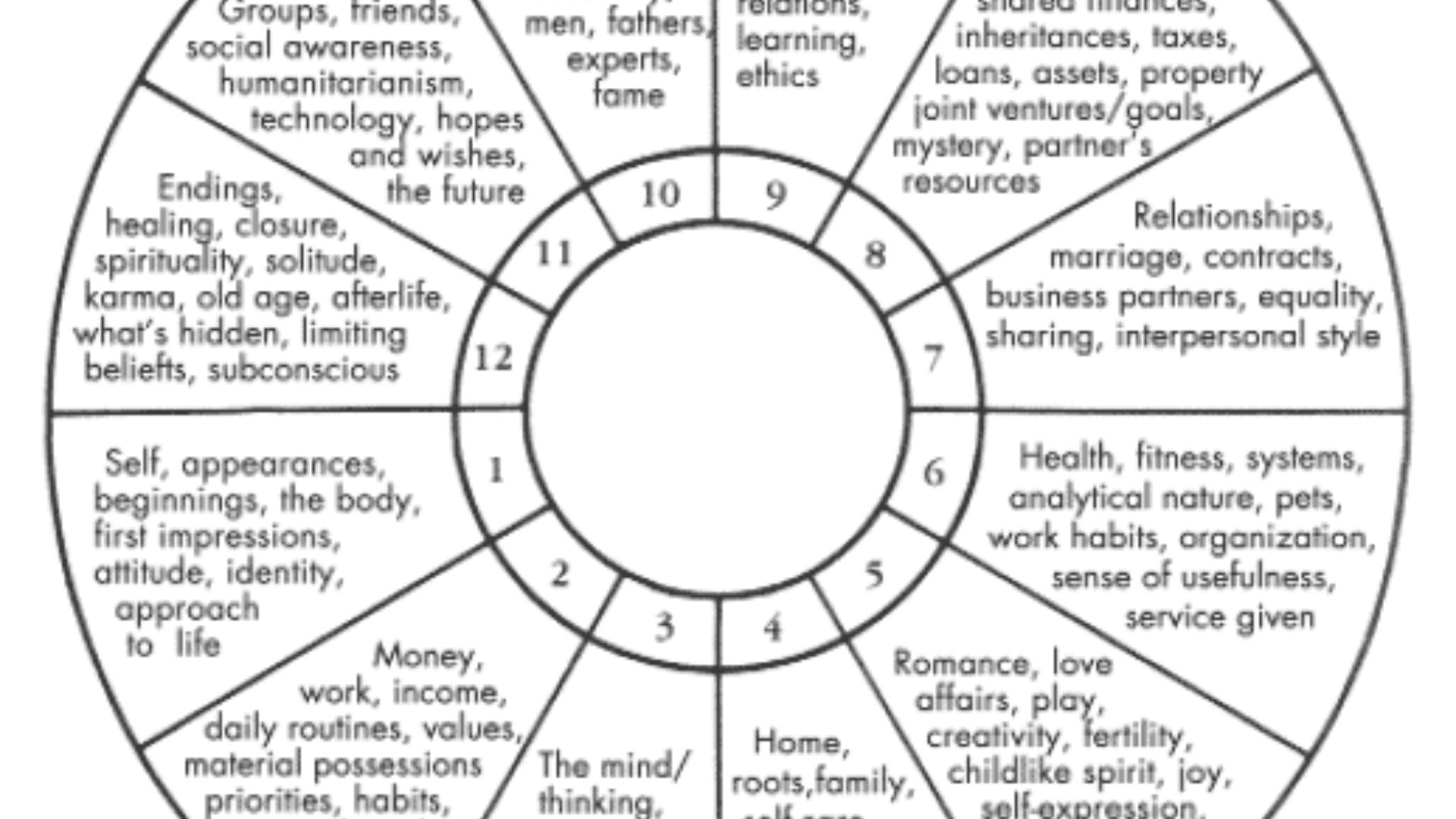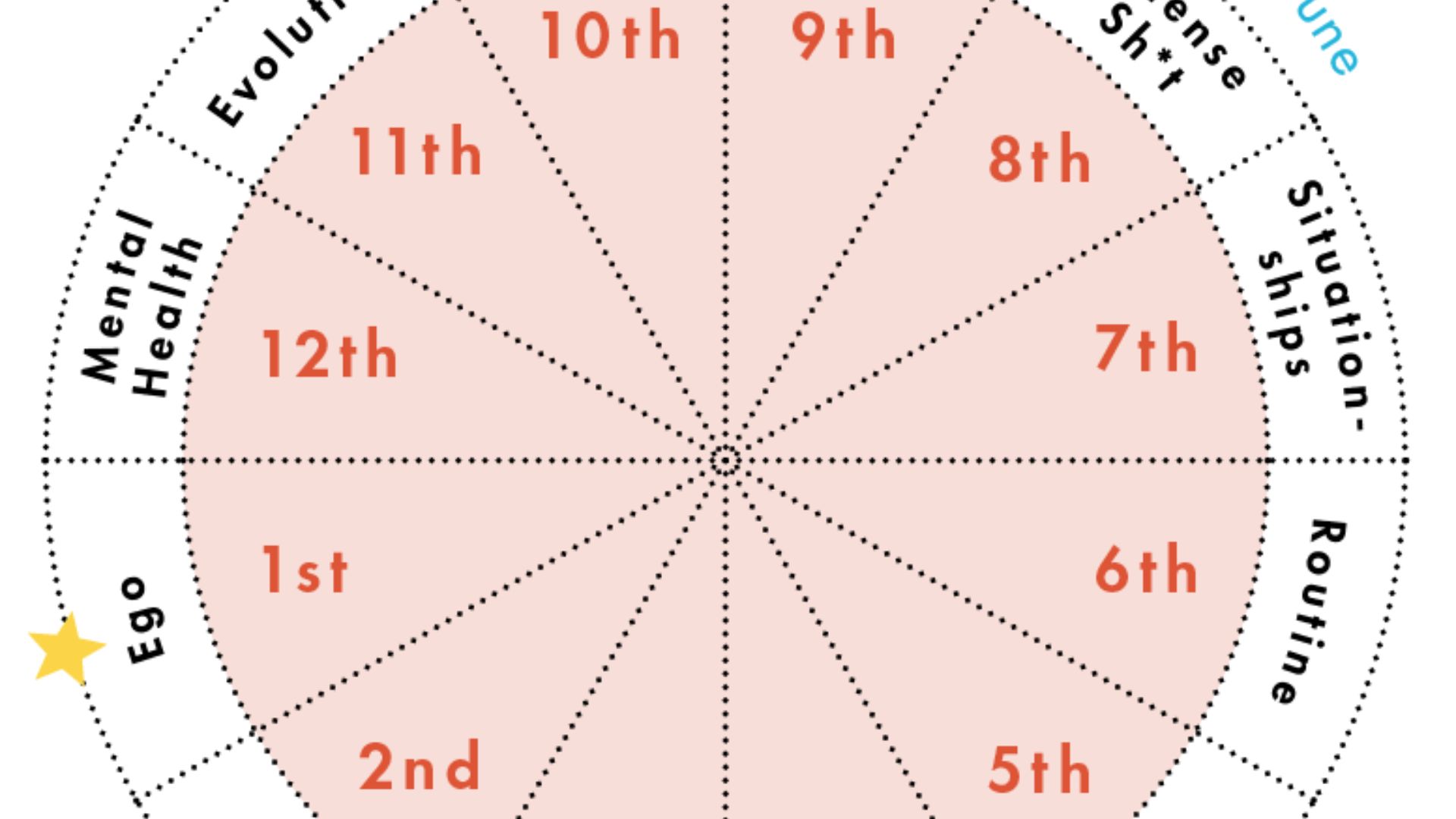What Are The Astrological Houses And Their Significance?
Astrology has been a subject of interest for many people, and one of its most essential components is the concept of "houses." Astrological houses are a crucial aspect of a person's natal chart and provide significant insight into their life.
Author:Mia ThompsonReviewer:Evelyn AdamsJan 08, 20241.5K Shares68.9K Views

Astrology has been a subject of interest for many people, and one of its most essential components is the concept of "houses." Astrological housesare a crucial aspect of a person's natal chart and provide significant insight into their life.
The twelve astrological houses are determined by the location of the planets at the time of a person's birth and represent different aspects of their life. Each house governs specific areas, such as personality traits, relationships, career, and spirituality.
What Are Astrological Houses?
Astrological houses are a set of twelve divisions or sections of the zodiac. Each house is associated with a particular area of life and represents a different aspect of a person's personality, experiences, and circumstances. The houses help astrologers to interpret the natal chart and gain a better understanding of a person's life.
The Twelve Astrological Houses
Each of the twelve astrological houses has a unique significance and meaning. Here's a brief overview of the twelve houses and what they represent:
First House - The House Of Self
The first house, also known as the Ascendant or the Rising Sign, represents the self, personality, appearance, and how the person interacts with their environment.
Second House - The House Of Possessions
The second house represents wealth, possessions, and financial stability. It also indicates a person's values, self-worth, and material possessions.
Third House - The House Of Communication
The third house is associated with communication, learning, and intellectual pursuits. It represents the way a person thinks, communicates, and processes information.
Fourth House - The House Of Home And Family
The fourth house represents home, family, and the domestic environment. It also indicates a person's roots, traditions, and emotional foundations.
Fifth House - The House Of Creativity And Romance
The fifth house represents creativity, self-expression, and artistic pursuits. It also indicates love affairs, romance, and children.
Sixth House - The House Of Health And Work
The sixth house is associated with health, work, and service. It represents a person's daily routines, work environment, and physical health.
Seventh House - The House Of Partnerships
The seventh house represents partnerships, marriage, and close relationships. It also indicates the kind of person a person is attracted to and their relationship dynamics.
Eighth House - The House Of Sexuality And Transformation
The eighth house represents sexuality, transformation, and deep emotions. It also indicates shared resources, inheritance, and psychological growth.
Ninth House - The House Of Philosophy And Travel
The ninth house represents higher education, philosophy, and long-distance travel. It also indicates a person's belief system, spirituality, and personal growth.
Tenth House - The House Of Career And Ambition
The tenth house represents career, ambition, and social status. It also indicates a person's reputation, public image, and professional goals.
Eleventh House - The House Of Friendship And Community
The eleventh house represents friendships, groups, and community involvement. It also indicates a person's social circle, networks, and humanitarian efforts.
Twelfth House - The House Of Spirituality And Solitude
The twelfth house represents spirituality, solitude, and introspection. It also indicates hidden enemies, limitations, and self-sabotage.
The Importance Of Astrological Houses
The astrological houses are an essential component of a person's natal chart, and they provide significant insights into a person's life. Understanding the different aspects of the houses can help individuals gain a better understanding of themselves and their experiences.
The houses help astrologers to interpret a person's chart accurately and provide guidance on their life path.
How Astrological Houses Are Calculated?
To calculate the astrological houses, the first step is to determine the Ascendant or Rising Sign. The Ascendant is the zodiac sign that was rising on the eastern horizon at the time of a person's birth.
It is one of the most important points in the natal chart and sets the stage for the placement of the other planets and points.
Once the Ascendant is determined, the astrological houses are calculated based on the degree of the zodiac that begins at the Ascendant. The first house begins at the Ascendant and spans the next thirty degrees of the zodiac.
The second house begins at the thirty-first degree and spans the next thirty degrees, and so on until all twelve houses have been accounted for.
Interpreting The Astrological Houses
Interpreting astrological houses requires a deep understanding of astrology and the different components of a person's natal chart. Each house represents a different aspect of a person's life, and the placement of the planets in the houses provides additional information about a person's experiences and circumstances.
For example, if a person has several planets in the tenth house, it indicates a strong emphasis on career and ambition in their life. If a person has several planets in the seventh house, it indicates a focus on relationships and partnerships.
It's important to note that the placement of planets in a house doesn't necessarily indicate the quality of the experience. For example, having several planets in the eighth house can indicate intense emotional experiences and transformation, but it can also indicate financial difficulties and power struggles.
Using Astrological Houses In Everyday Life
Astrological houses can provide valuable insights into a person's life, but they are not deterministic. A person's natal chart provides a map of the energies and potentials in their life, but it's up to the individual to make choices and take action.
However, understanding the different aspects of the houses can help individuals make more informed choices and gain a better understanding of their strengths and weaknesses.
For example, if a person has several planets in the fifth house, they may benefit from pursuing creative endeavors and exploring their artistic side. If a person has several planets in the sixth house, they may benefit from prioritizing their health and work routines.
The Relationship Between Astrological Houses And Planets
The relationship between astrological houses and planets is an essential component of interpreting a person's natal chart. Each planet represents a different energy or archetype, and its placement in a house provides additional information about how that energy is expressed in a person's life.
For example, if a person has Mars in the second house, it indicates that their energy and drive are directed toward financial stability and material possessions. If a person has Venus in the seventh house, it indicates that their energy is directed toward partnerships and relationships.
The relationship between planets and houses can also indicate areas of strength and challenge in a person's life. For example, if a person has Saturn in the tenth house, it can indicate challenges in their career and public image, but it can also indicate a strong work ethic and determination.

HOUSES IN ASTROLOGY Meanings: Each House Explained (EASY FOR BEGINNERS)
Astrological Houses And The Four Elements - Fire, Earth, Air, Water
In astrology, the twelve astrological houses are traditionally associated with four elements: fire, earth, air, and water. Each element is associated with three houses, and the placement of planets in these houses can provide additional information about a person's experiences and circumstances.
The fire houses (first, fifth, and ninth) are associated with creativity, passion, and self-expression. If a person has several planets in these houses, it indicates a strong focus on these areas of life.
The earth houses (second, sixth, and tenth) are associated with practicality, stability, and material possessions. If a person has several planets in these houses, it indicates a focus on financial stability and career success.
The air houses (third, seventh, and eleventh) are associated with communication, relationships, and intellectual pursuits. If a person has several planets in these houses, it indicates a focus on these areas of life.
The water houses (fourth, eighth, and twelfth) are associated with emotions, intuition, and spirituality. If a person has several planets in these houses, it indicates a focus on these areas of life.
The Intersection Of Astrological Houses And Aspects
In astrology, aspects refer to the angles formed between two planets or between a planet and a sensitive point in the natal chart. The most commonly used aspects are the conjunction (0 degrees), opposition (180 degrees), trine (120 degrees), square (90 degrees), and sextile (60 degrees).
When interpreting the astrological houses, the aspects formed between the planets in the houses can provide additional information about a person's experiences and circumstances. For example, if a person has a conjunction between the Sun and Mercury in the second house, it indicates that their communication style is closely tied to their sense of self-worth and financial stability.
Similarly, if a person has a square between Mars in the first house and Saturn in the fourth house, it indicates that their drive and ambition may conflict with their sense of emotional security and stability.
Astrological Houses FAQs
How Are Astrological Houses Determined?
Astrological houses are determined by the time and location of a person's birth.
What Are The Rulers Of Each Astrological House?
Each astrological house has a ruling planet, which provides additional insight into the areas of life represented by that house.
What Are The Different Types Of Aspects In Astrology?
Aspects are specific angles between planets in a person's birth chart, and each aspect has a unique influence on a person's life and personality.
How Do The Elements And Modalities Relate To The Astrological Houses?
Each astrological house is associated with a specific element (fire, earth, air, or water) and modality (cardinal, fixed, or mutable), which provide additional insights into the areas of life represented by that house.
Conclusion
The astrological houses provide a map of the energies and potentials in a person's life, and understanding them can be a powerful tool for personal growth and self-awareness. While astrology is often criticized as a pseudoscience, many people find value in exploring their natal chart and using it as a tool for reflection and personal development.
Jump to
What Are Astrological Houses?
The Twelve Astrological Houses
The Importance Of Astrological Houses
How Astrological Houses Are Calculated?
Interpreting The Astrological Houses
Using Astrological Houses In Everyday Life
The Relationship Between Astrological Houses And Planets
Astrological Houses And The Four Elements - Fire, Earth, Air, Water
The Intersection Of Astrological Houses And Aspects
Astrological Houses FAQs
Conclusion

Mia Thompson
Author
Mia Thompson is a versatile writer at Kansas Press, delving into a range of topics including news, spiritual exploration, astrology, and numerology. With a passion for delivering insightful and informative content, Mia's articles provide readers with valuable perspectives and thought-provoking insights into these intriguing subjects.
She is dedicated to creating content that resonates with readers and fosters a deeper understanding of complex topics.

Evelyn Adams
Reviewer
Evelyn Adams is a dedicated writer at Kansas Press, with a passion for exploring the mystical and uncovering hidden meanings.
Evelyn brings a wealth of knowledge and expertise to her insightful articles. Her work reflects a commitment to providing accurate information, thoughtful analyses, and engaging narratives that empower readers to delve into the mysteries of the universe.
Through her contributions, Evelyn aims to inspire curiosity, spark imagination, and foster a deeper understanding of the supernatural world.
Latest Articles
Popular Articles
